Portraits of intimacy and the human experience in modern India
Aditya Verma says his canvases are people themselves and what they’re saying has an impact
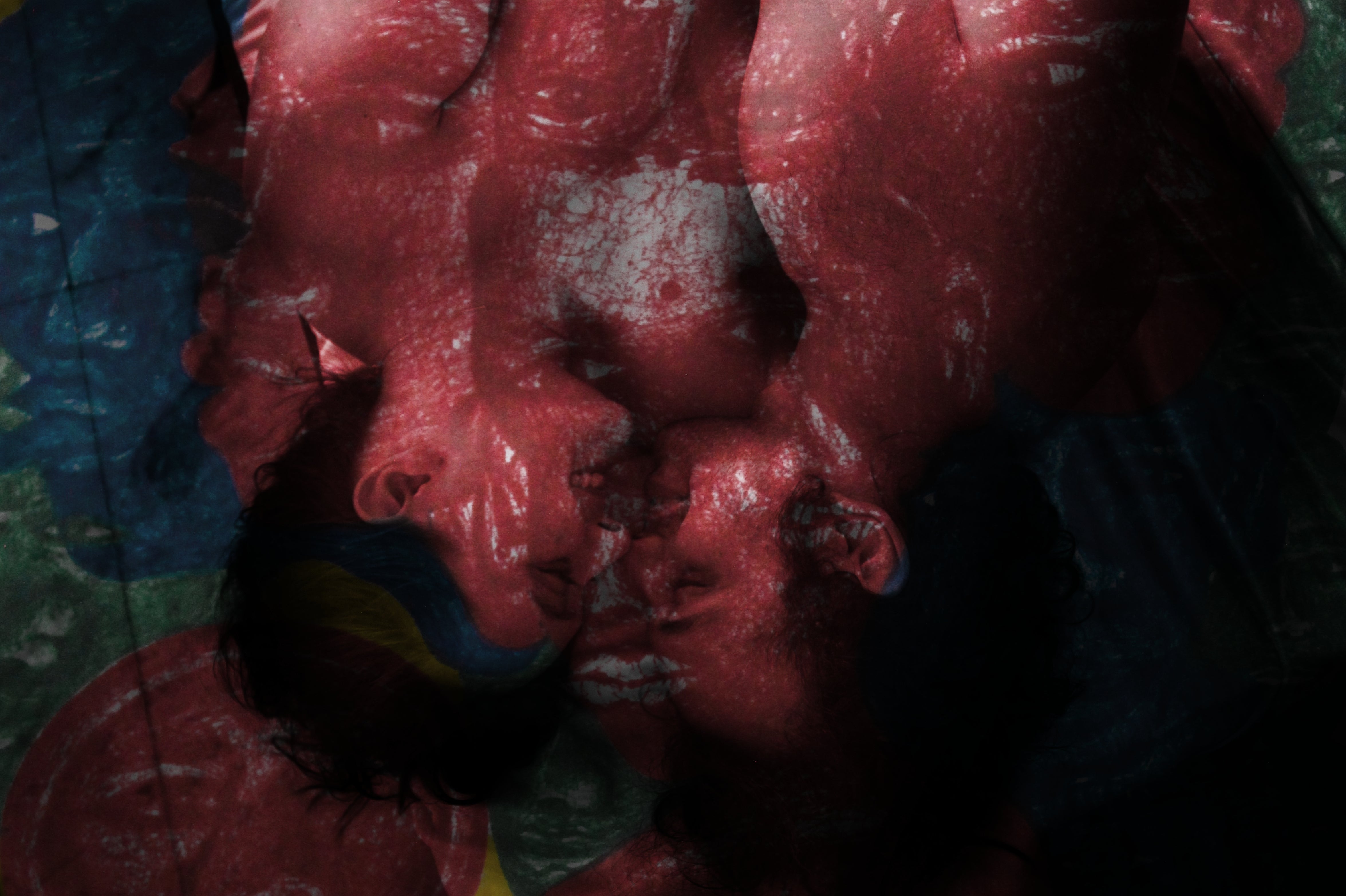
Your support helps us to tell the story
From reproductive rights to climate change to Big Tech, The Independent is on the ground when the story is developing. Whether it's investigating the financials of Elon Musk's pro-Trump PAC or producing our latest documentary, 'The A Word', which shines a light on the American women fighting for reproductive rights, we know how important it is to parse out the facts from the messaging.
At such a critical moment in US history, we need reporters on the ground. Your donation allows us to keep sending journalists to speak to both sides of the story.
The Independent is trusted by Americans across the entire political spectrum. And unlike many other quality news outlets, we choose not to lock Americans out of our reporting and analysis with paywalls. We believe quality journalism should be available to everyone, paid for by those who can afford it.
Your support makes all the difference.Artists are more multidisciplined in the 21st century than before. And why not? They have the means to combine traditional techniques with technology, in ways that are becoming increasingly accessible.
Aditya Verma believes his work naturally combines mediums: painting and photography are a seamless blend, with paint being the focal point. His series on body art, in which he paints spectacular, multicoloured works on human subjects, can be described as intimate and intoxicating. Verma, of Delhi, coined this particular form as “body painting”. Throughout the continuing series, he works with people who have chosen to have their stories and innermost thoughts physically canvassed upon them.
He says: “The inspiration [for body painting] comes from the people I work with. If I were painting on a canvas, it would be just about me but here, my canvas is a person and what they’re saying has an impact. During the session, I get to be a part of someone’s life for a small window of time.”
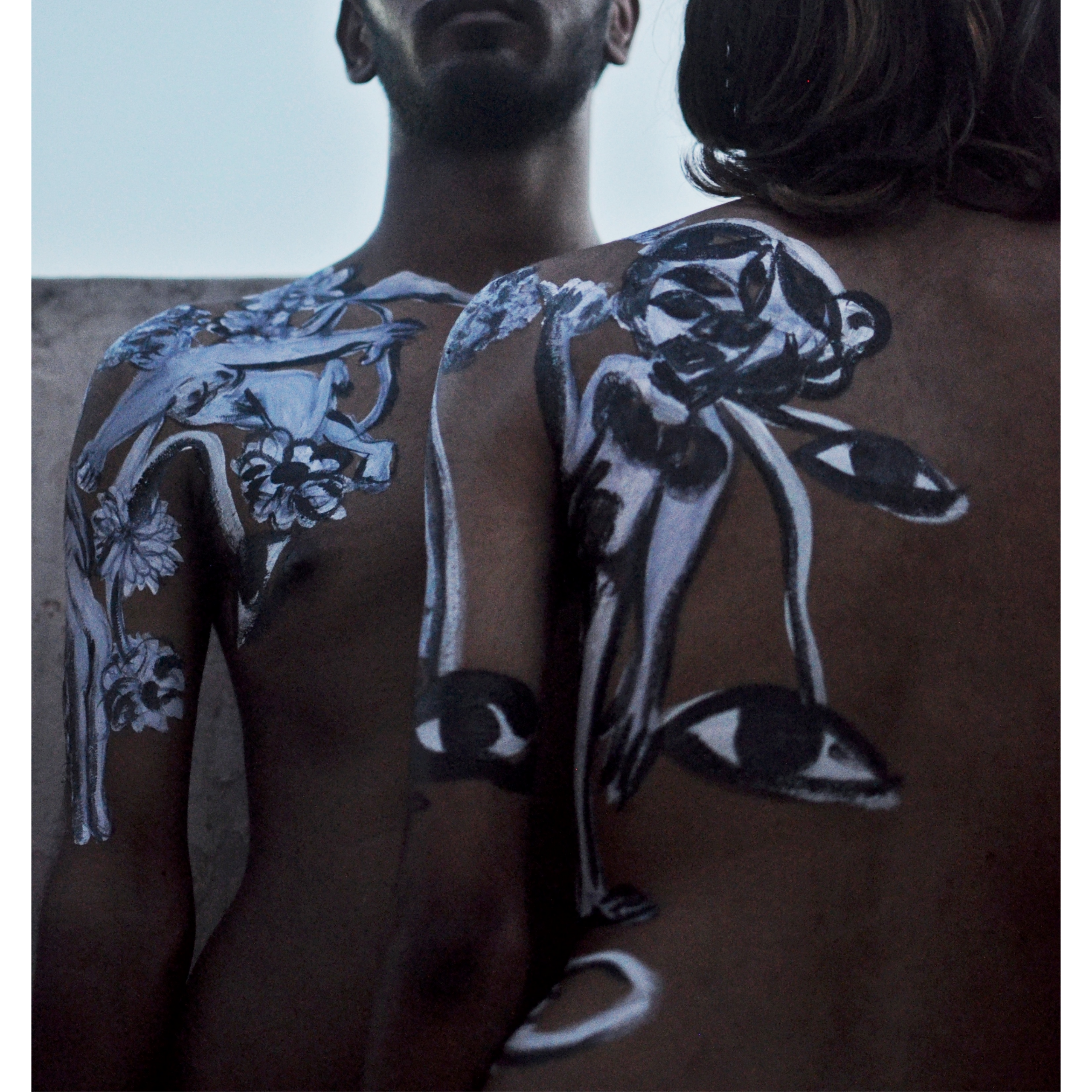
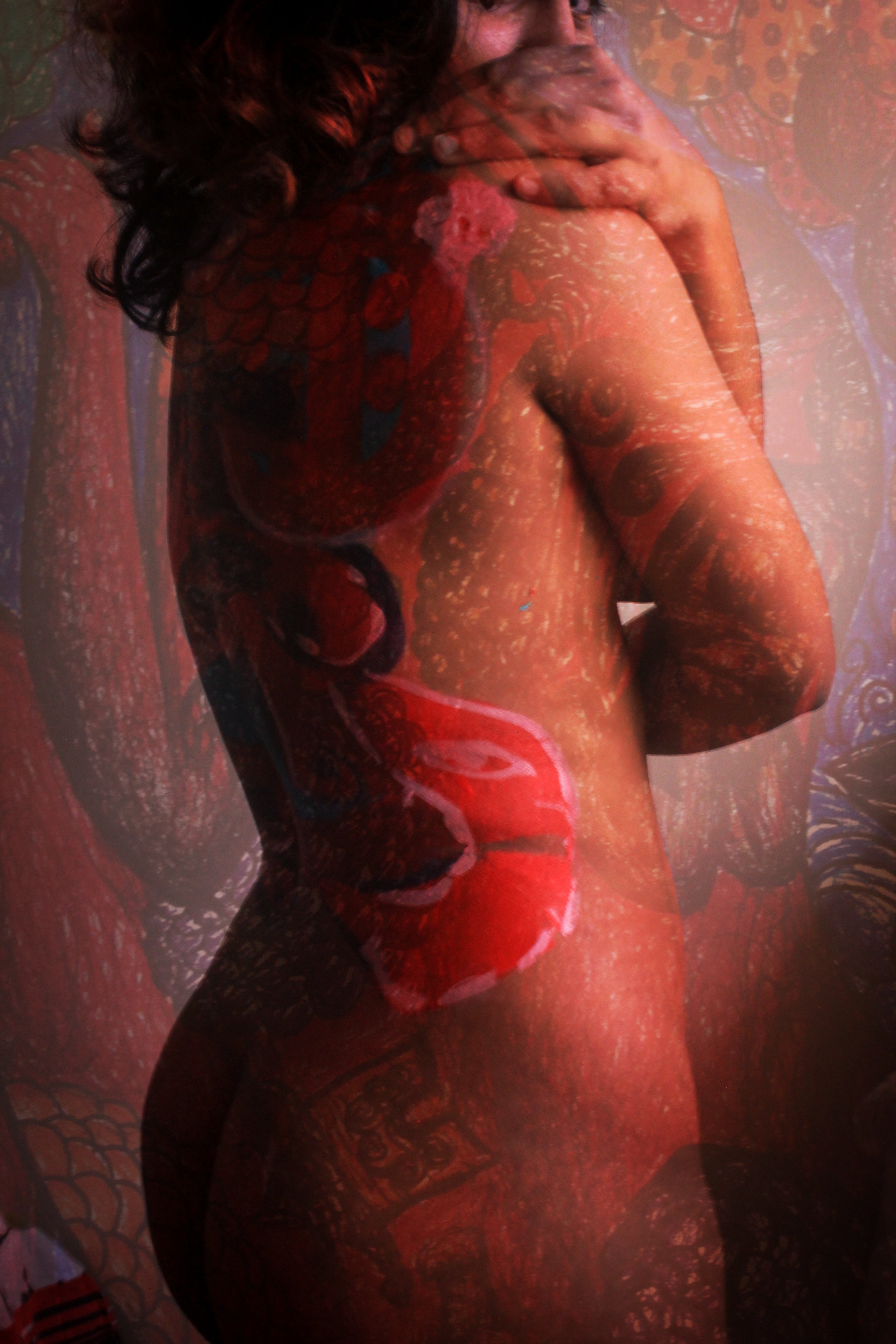
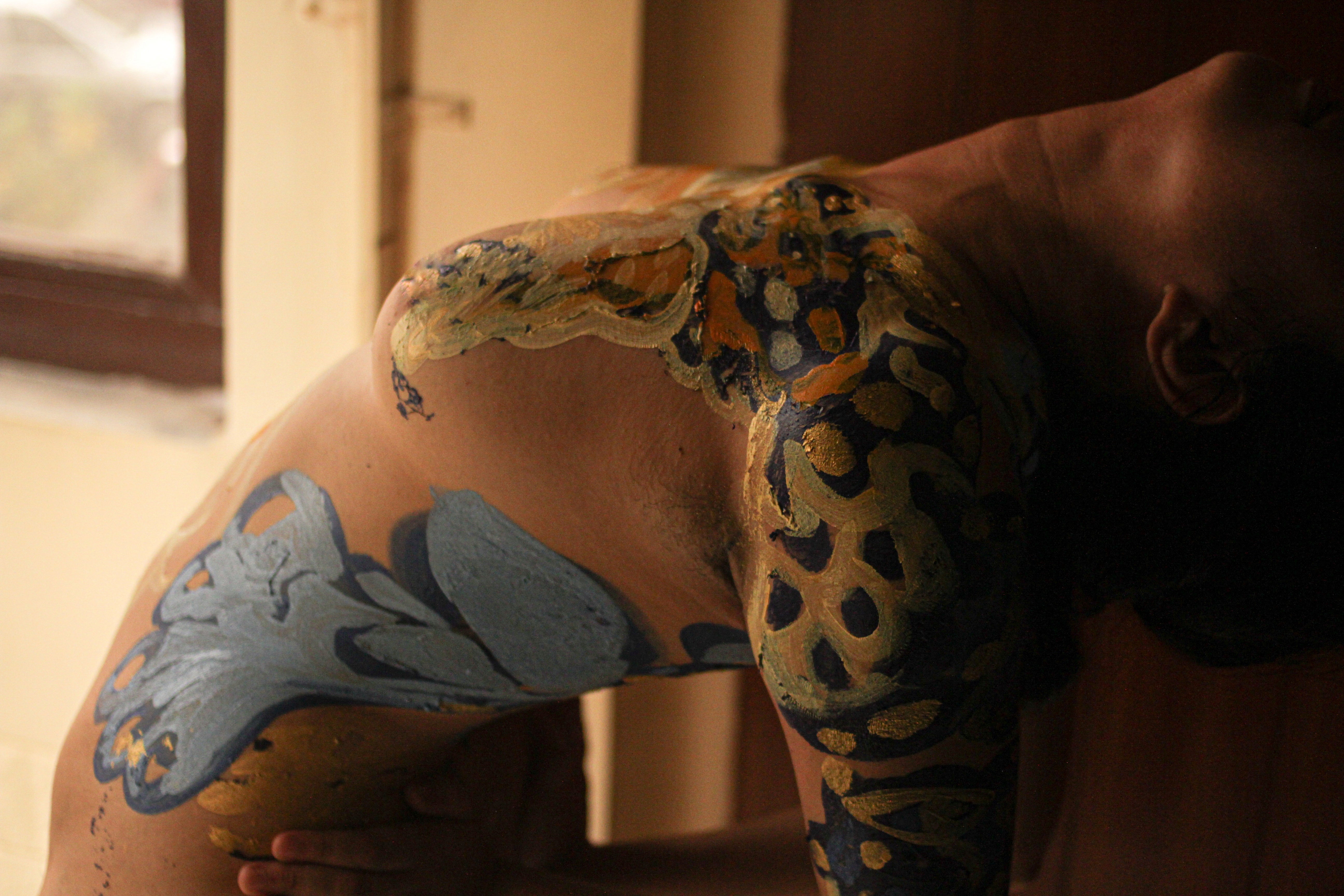
A glance at his photographs reveals the depths and painstaking time in each. Verma says that each painting session lasts anywhere from four to 12 hours, during which he works and speaks with his subjects, inspired by their conversations and infusing his paintings with what he hears. Afterwards, he photographs each subject.
The people Verma works with are not at his request. They approach him and the work is born from there. Many of his photographs and paintings are centred around couples, who seek for their relationships, anxieties, and intimacies to be captured through Verma’s eye. He explains that each conversation has a physical reaction, which he translates into his vision.
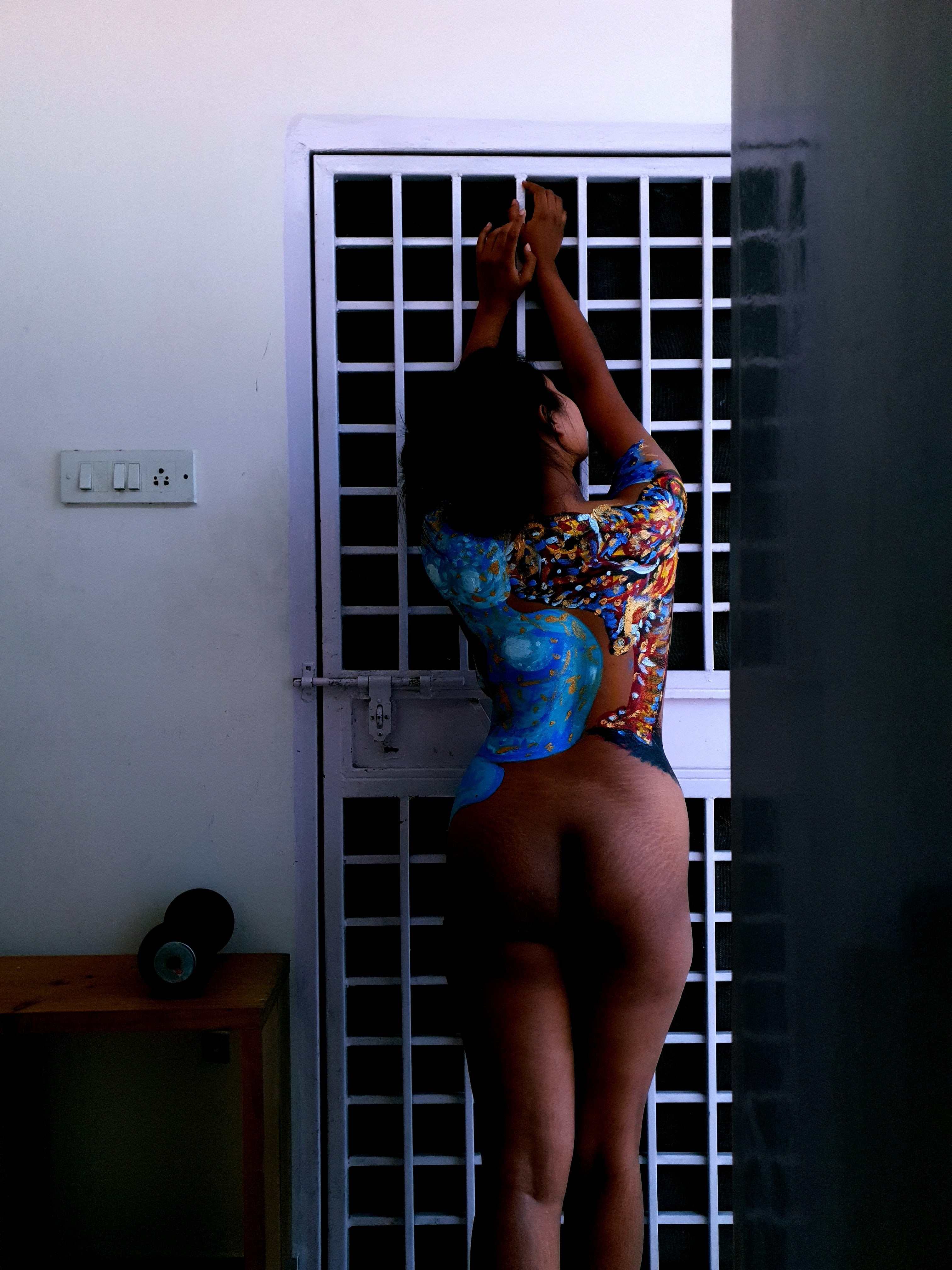
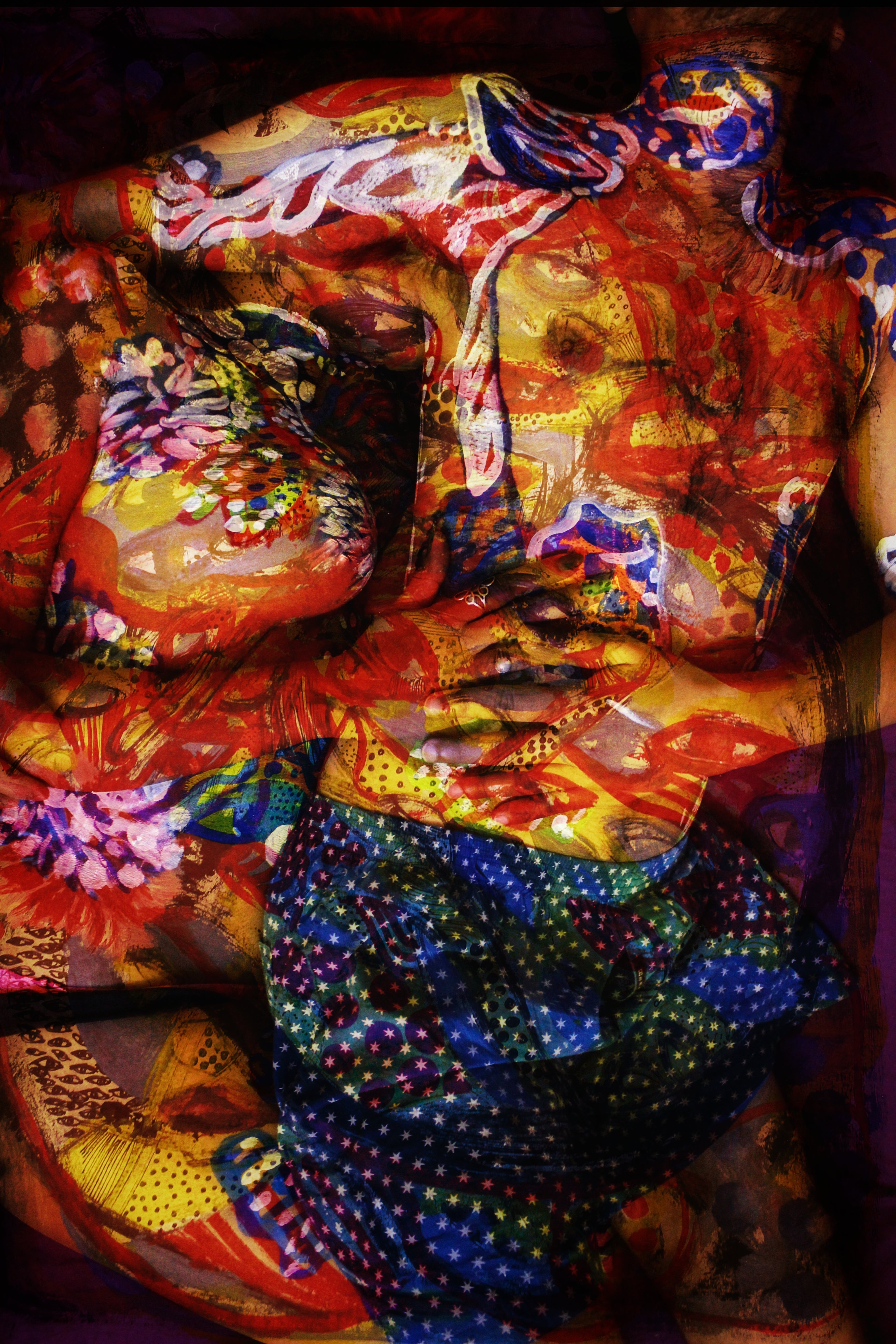
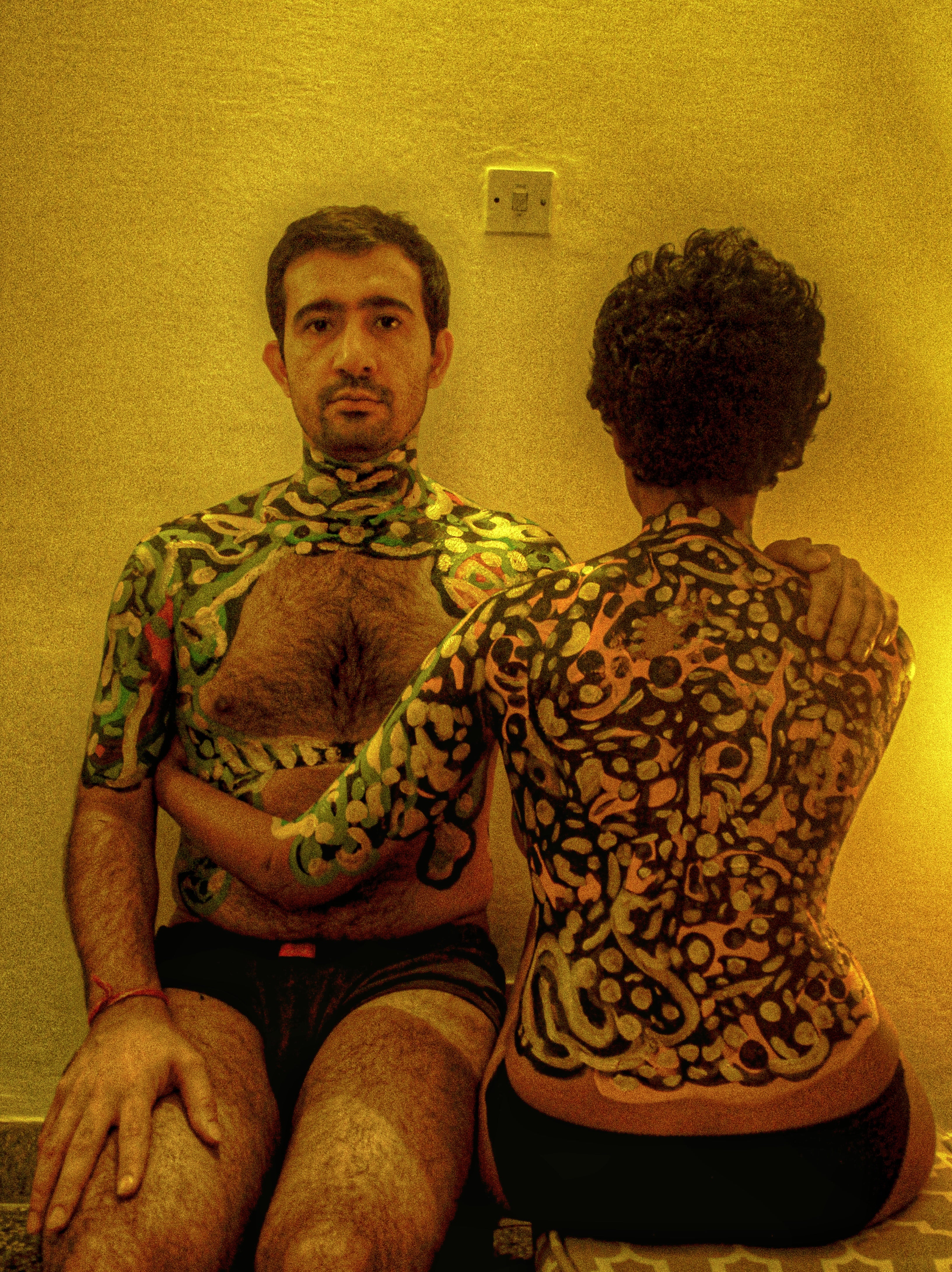
Because of the nature of the process, his work is often abstract and raw, as if following the stream of conversation. The artist takes a deeply philosophical approach to his art, saying that he works in a subconscious state, resulting in artwork that is, “very true, honest, and unfiltered”.
Read more:
Verma began sharing his body art on Instagram in 2018 and received what he describes as a “phenomenal” response. While traditional painting sits at the core of his artistry, Verma harnesses photography to bring his art to the world – art that pushes boundaries when it comes to love, the human body and interconnectedness. He highlights that his photography is not a focal point of the art but rather a means to document what will later be erased. Despite this, Verma’s photography mirrors his artwork, with an intimate and sensitive quality.
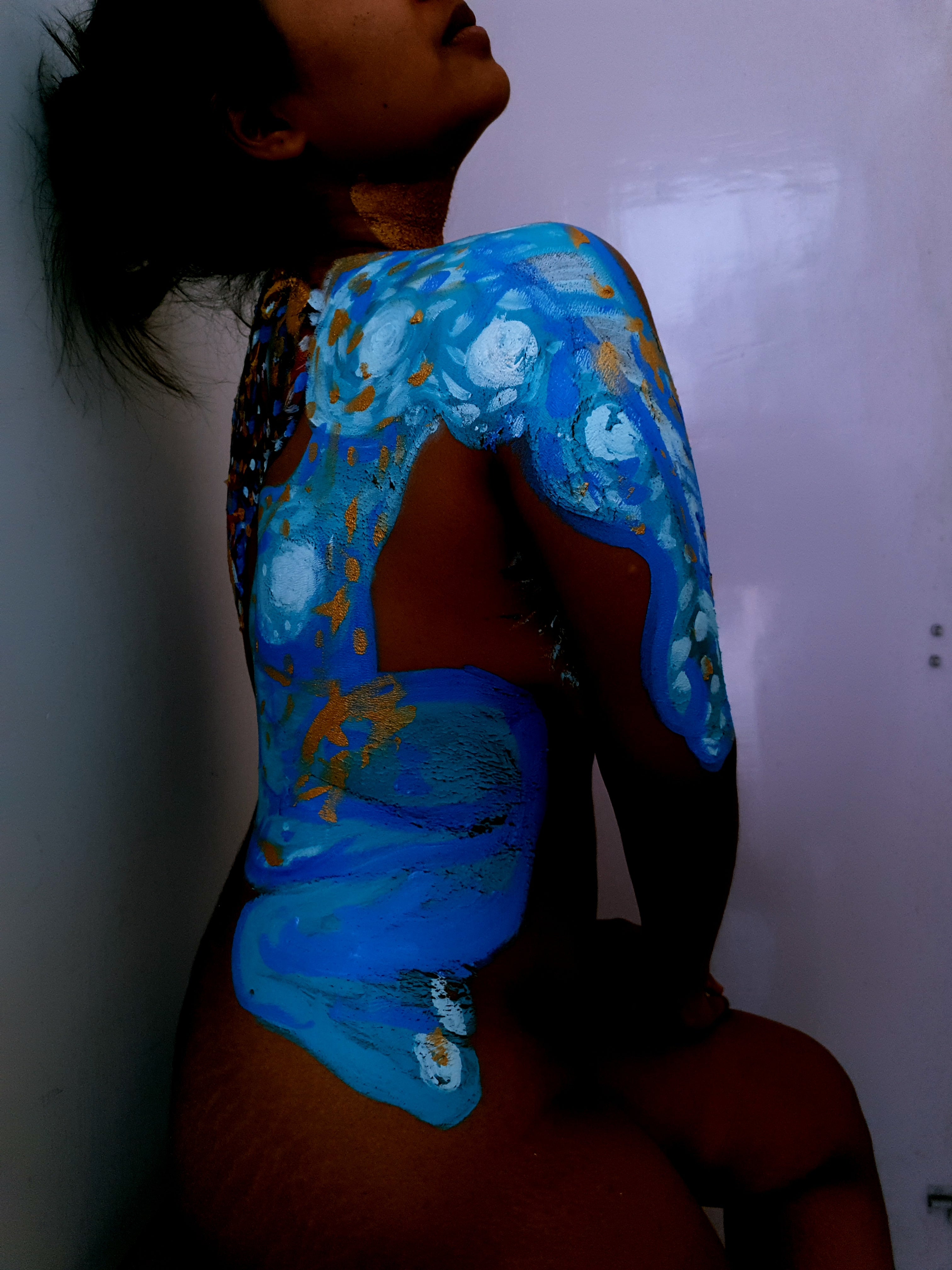
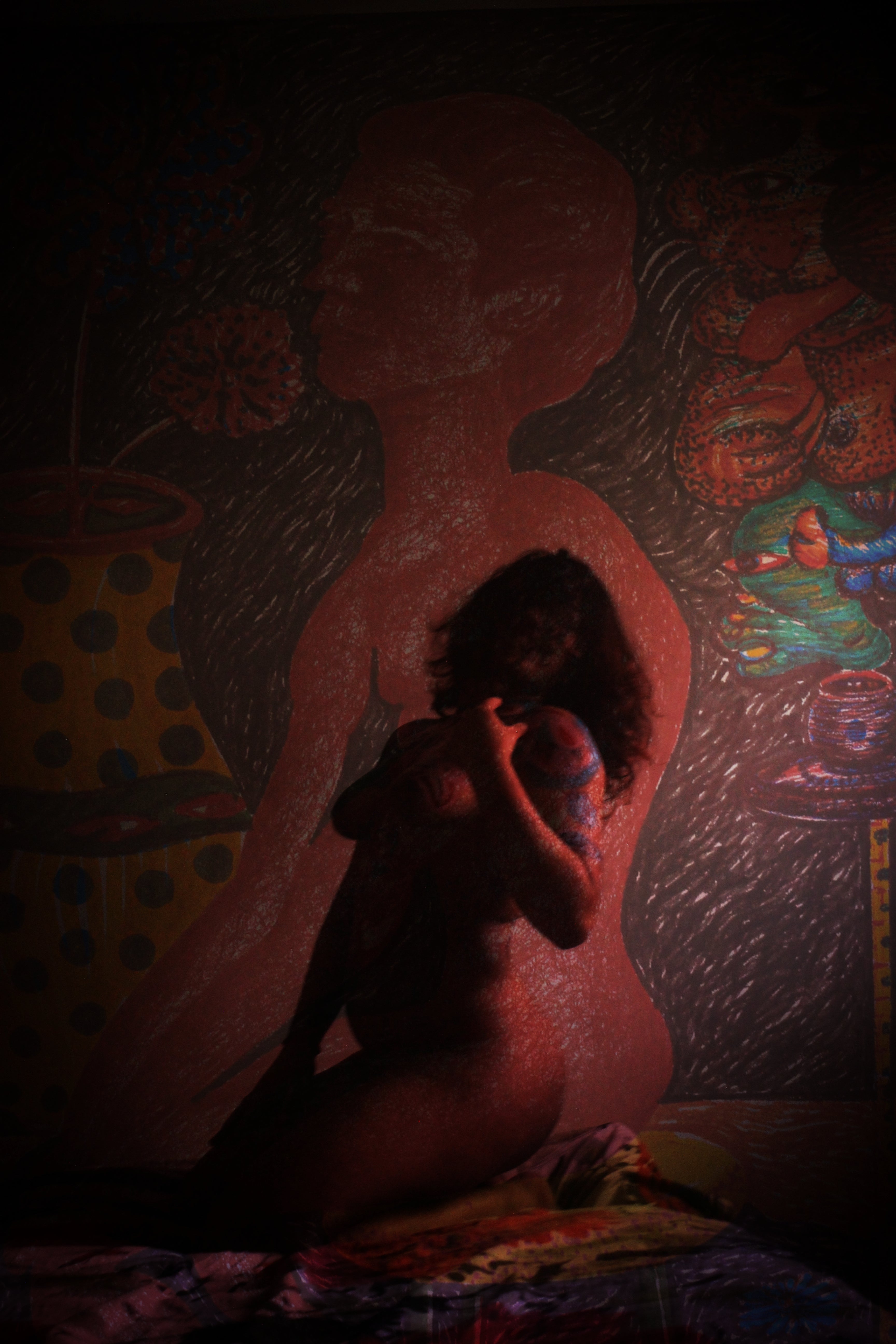
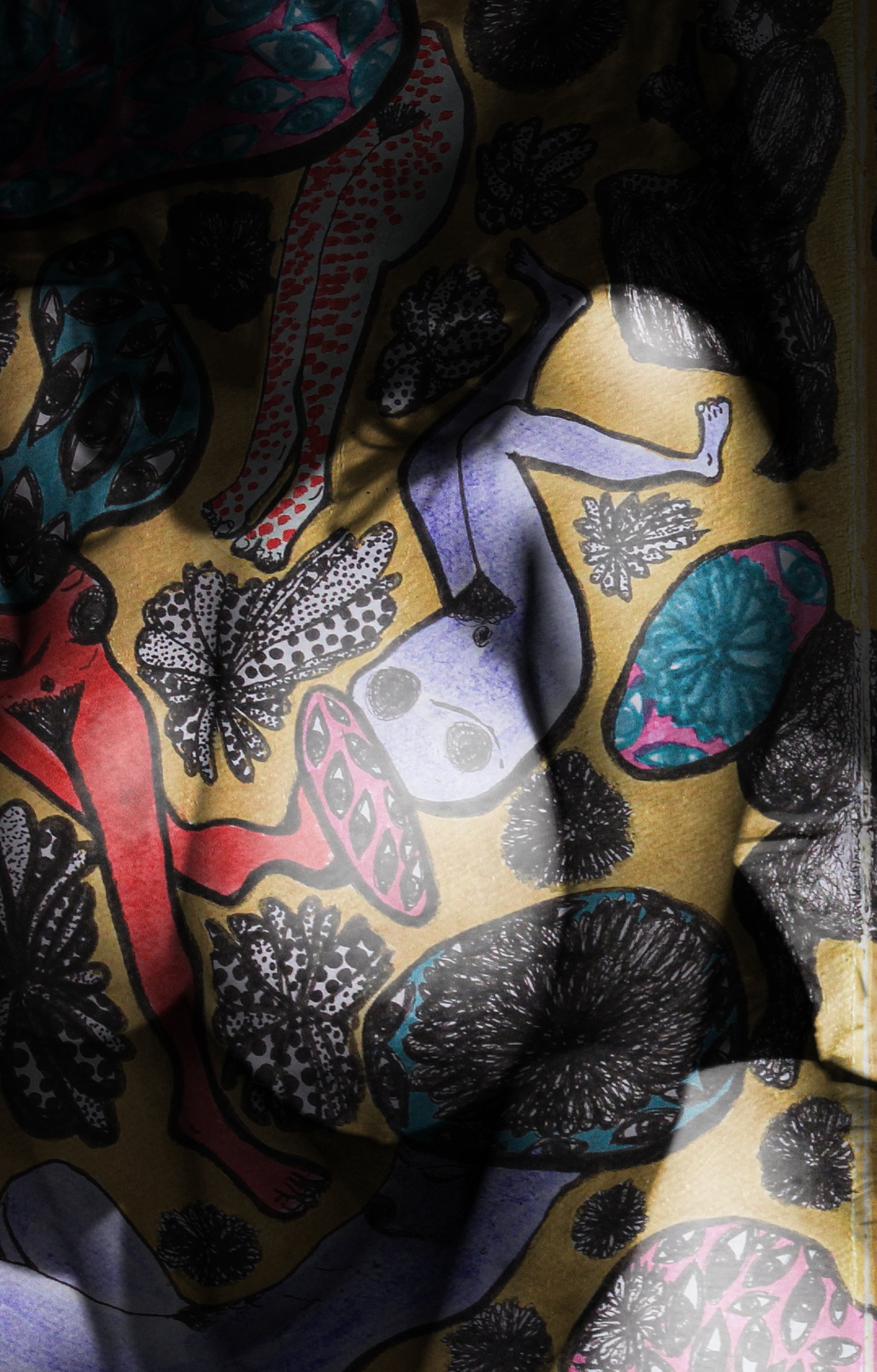
He says: “My art is derived from the pillars of tradition. But I’m taking that and exploring it with modern elements.”
The unadulterated aspect to Verma’s work has resulted in social media posts being taken down on many occasions. His account has been restricted or posts have been reported. This is something to which he has become accustomed.
He says: “Doing this kind of work in India means that there are a lot of questions and you will meet obstacles such as censorship. But there is resilience, too.”
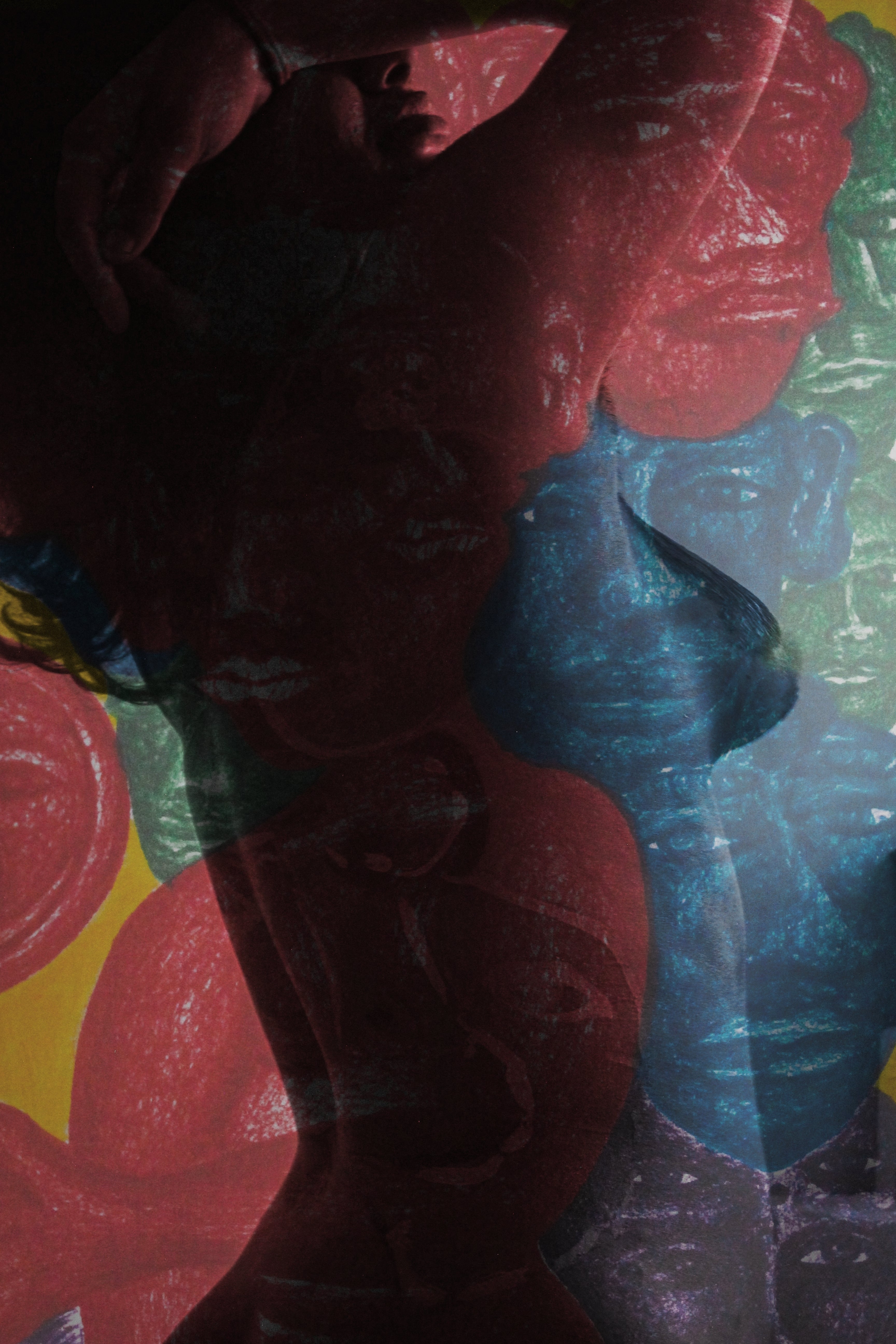
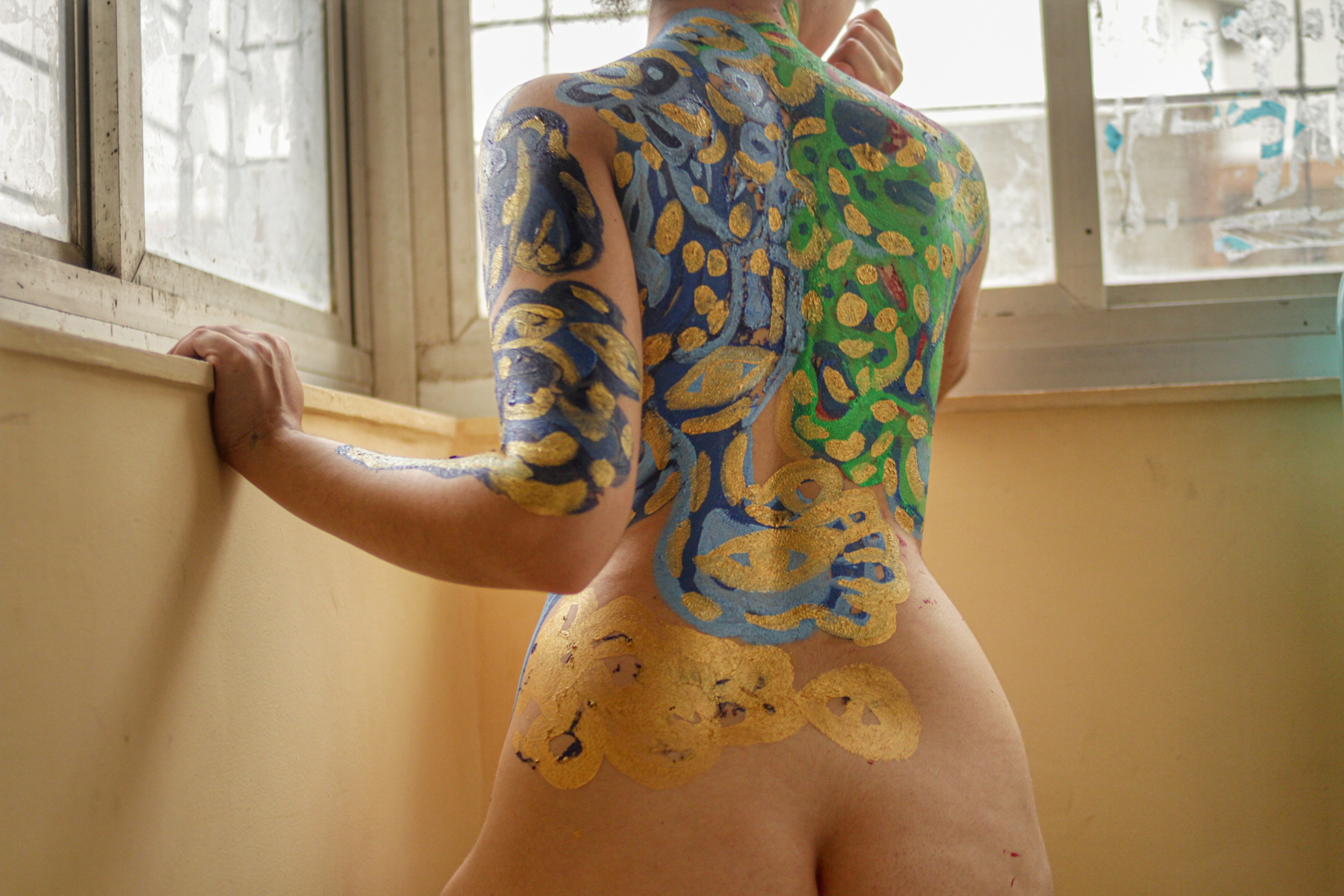
Such blockades have not stopped Verma, with his vast body of work. He acknowledges that for conservative societies nudity in art is often difficult to reconcile. He aims to shape and challenge these notions, hoping to create a kind of normality in what he is offering the public.
He says: “Art’s role is very slow and true. The voice in your work can never be taken away. Even if you have a small impact, it’s a very permanent one.”
Join our commenting forum
Join thought-provoking conversations, follow other Independent readers and see their replies
Comments